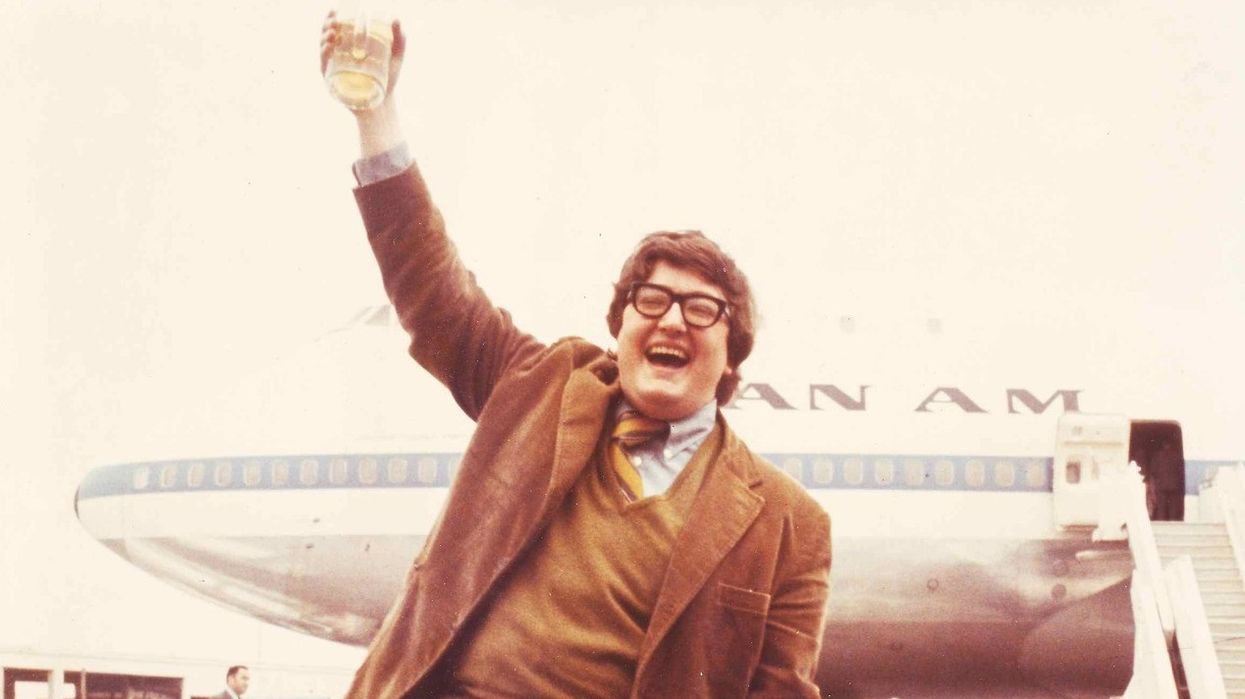Watch the Trailer for This Amazing Roger Ebert Documentary Produced by Martin Scorsese

Roger Ebert, am I right? I am. Best guy. All day. Besides his heroic struggle with and total refusal to capitulate to cancer, the man was a working film critic for over forty years, and while, yes, that might sound like a dream job, it also means seeing every drecky rom-com that comes out each Friday and writing up 500 to 1000 vaguely thoughtful words about it. And his words were never vaguely thoughtful. They were always incisive, smart, and usually spot-on. Now there's a new documentary about the man himself, directed by Hoop Dreams' Steve James along with Martin Scorsese as Executive Producer. Click through to watch the trailer and learn more!
Ebert was famous for years as a columnist for the Chicago Sun Times (this article describes Steve James' extraordinary access to Ebert in his final years, which included being with the critic when he died), as well as for his long-running syndicated show with, most notably, Gene Siskel. In 1975, though, he was the first critic to win the Pulitzer Prize for Criticism, which is, you know, not too shabby, and that same year, he started hosting the show that would, single-handedly, bring the opposable thumb into criticism (puns!):
We lost a true legend last year, and now Steve James, director of the acclaimed basketball doc Hoop Dreams, and Executive Producer Martin Scorsese, who is some dude, I think, have come together to release this amazing-looking documentary on the life of the man himself:
Life Itself [is] a film that recounts the inspiring, entertaining and colorful life of world-renowned film critic Roger Ebert—a story that is by turns personal, funny, moving and transcendent. Based on his bestselling memoir of the same name, Life Itself explores Roger Ebert’s legacy—his Pulitzer Prize-winning film criticism at the Chicago Sun-Times, his turn as screenwriter of Beyond the Valley of the Dolls his on and off screen relationship with Gene Siskel, all culminating in his ascension as one of the most influential cultural voices in America.
Life Itself premiered at Sundance in January and roughly $150,000 of its $1 million budget was crowdsourced by Indiegogo. It's fitting that the film is being released on July 4th, because the man was an American treasure and one the most consistent advocates for great, challenging movies and directors. He was also never one to shy away from controversy: of the nearly-universally beloved Blue Velvet, he opined that it was "marred by sophomoric satire and cheap shots." I was just reading his retrospective look at Magnolia and it gets to the heart of what is a very opaque movie, on many levels. I felt I understood the film better after I read his piece, and that's something difficult for any criticism to do. Add to this the fact that the man, afflicted by terrible cancer, continued to write and work until nearly his death, assisted by his tireless and devoted wife, Chaz; what he did with the cards he was dealt, was, quite frankly, inspirational, and not much is inspirational these days. But this -- this.
Yes. Here's Ebert at the Toronto Film Festival, several years ago, talking about John Cassavetes and the independent film movement. His incisive point about the influence of Cassavetes (among a small group of others) being the bridge in the U.S. between mainstream Hollywood and the pure art film is well taken:
So, you know what to do. July 4th, go see this movie. Walk, run, hitchhike. (Well, don't hitchhike. That's dangerous. We don't endorse that.) But see it. Pay tribute to one of the best writers about cinema the U.S. has ever produced, and remember him as he was.
Link: Filmmaker on the life and movies of Roger Ebert -- Chicago Sun Times
[via Cinephilia and Beyond]











![Ethos, Pathos, Logos: 20 Effective Ways to Advertise [Infographic]](https://nofilmschool.com/media-library/ethos-pathos-logos-20-effective-ways-to-advertise-infographic.jpg?id=34064614&width=600&height=600&quality=90&coordinates=560%2C0%2C0%2C0)

